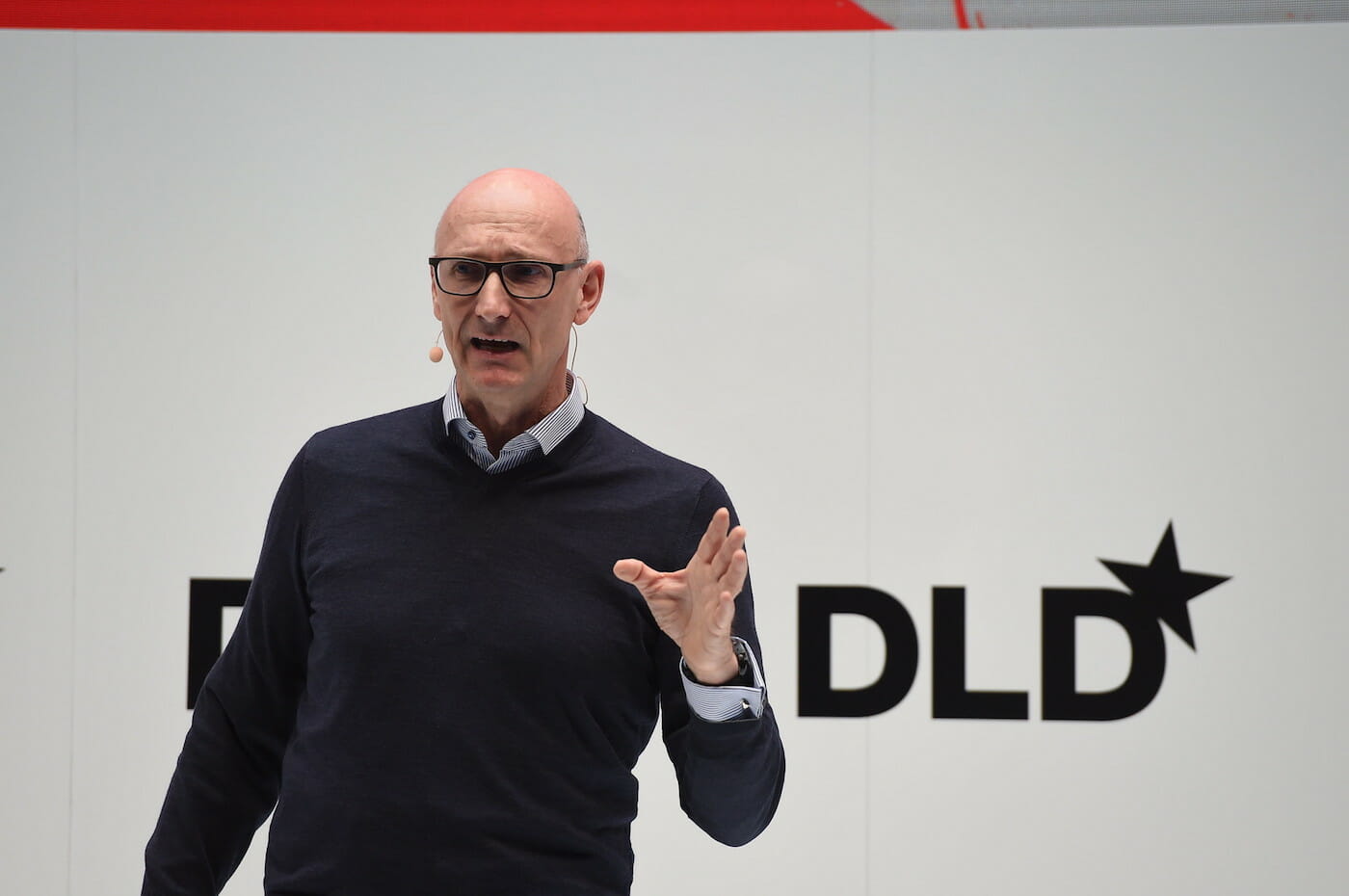Advanced digital services require innovative infrastructures and a political environment that allows building them. Timotheus Höttges, CEO of Deutsche Telekom, talks about the missing links for today’s connectivity demands and the renaissance of the telco industries.
Höttges is known for being outspoken and thinking outside the box. In his engaging speech at DLD18, he made an appeal to reconquer optimism, stop complaining and start working on solutions. He criticized European politicians as “world champions of observation.” However, merely talking about problems will not tackle any of the challenges we are facing.
AI is already a main driver for today’s infrustructure. Within the next ten years, we will see AR and VR upgrading our reality, autonomous vehicles will change our mobility, quantum computing will be reality and blockchain will have created a new internet of trust, Höttges predicts.
What does that mean for the telecommunication industries? Höttges shares Deutsche Telekom’s plans to build the 5G network and explains its advancements in detail. For instance, it will enable low latency applications that are crucial for autonomous driving. To provide enough safety, the latency needs to be below 10 milliseconds. With today’s infrastructure, even lightspeed wouldn’t be fast enough to solve the problem. The architecture of the mobile network has to be entirely rebuild making use of clouds that can buffer informations.
Deutsche Telekom plans to tailor these services for industry needs, not making them available for other usages such as checking emails where this speed isn’t called for, Höttges says.
Wrapping it up, Höttges believes 5G and IoT will be great opportunities for making a lot of money in Europe. While America and China have won the competition on B2C platforms, Europe has a great opportunity advancing in this B2B field and shouldn’t miss its chance.
